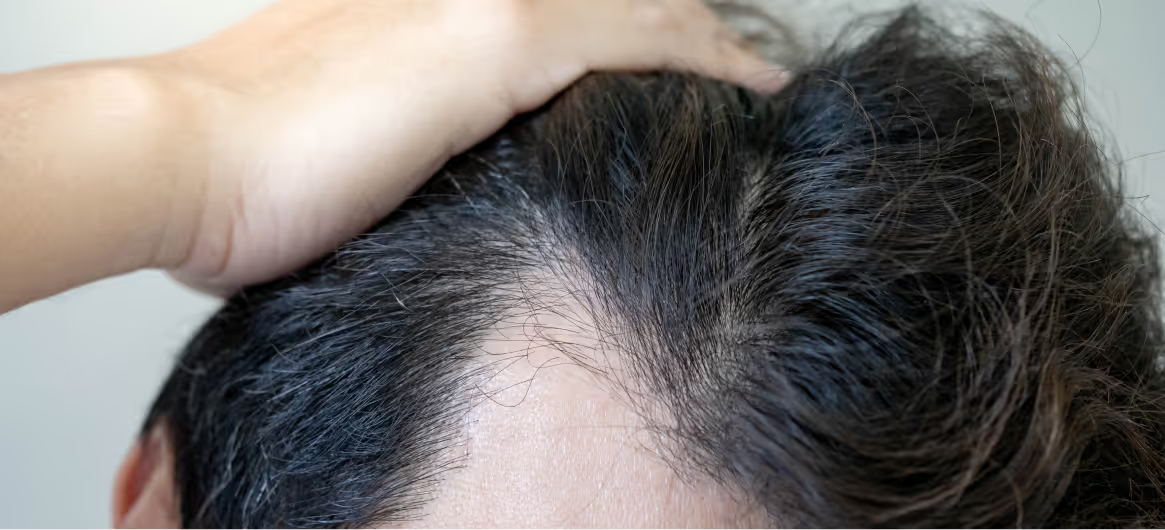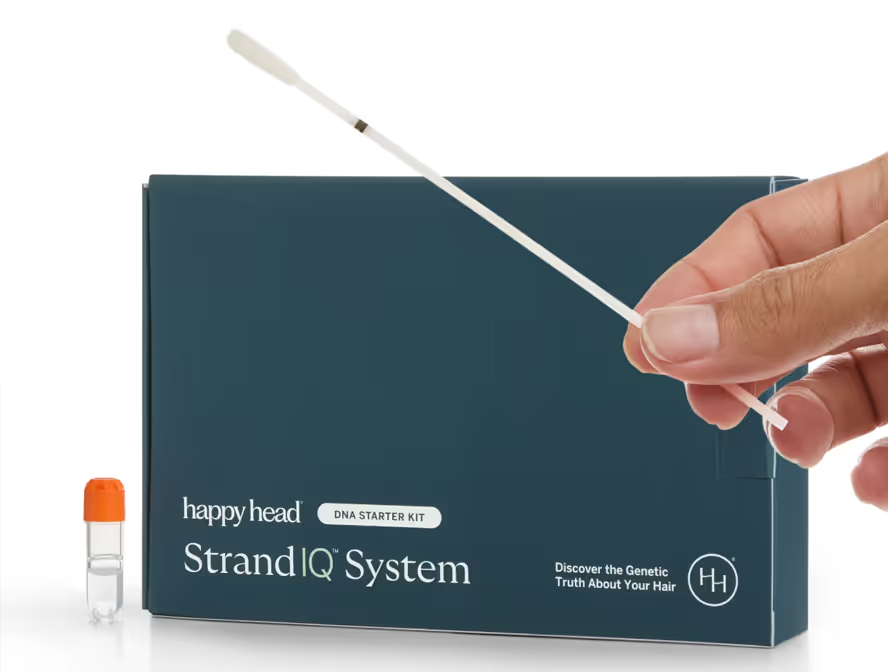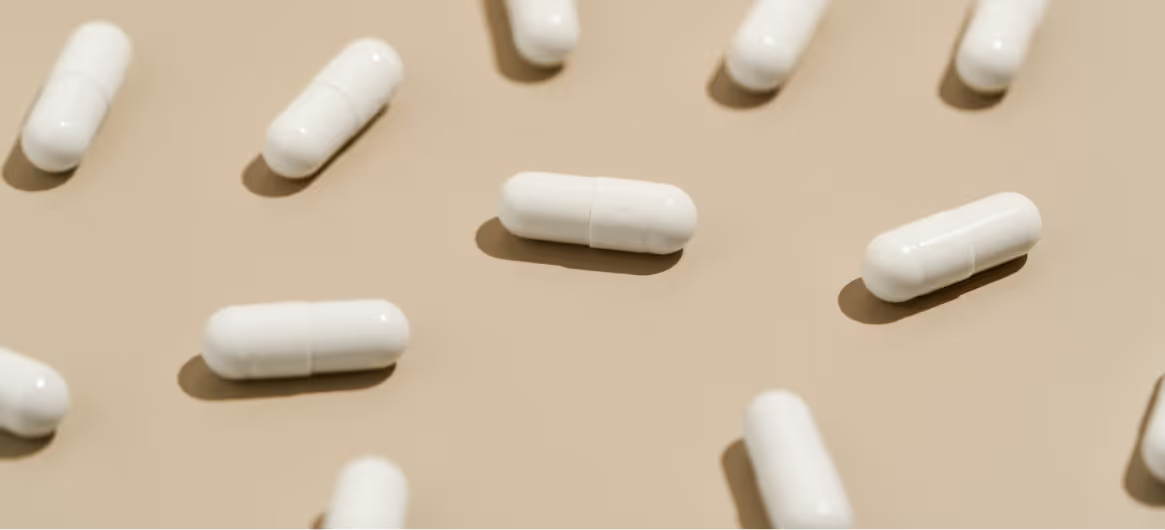We all know sugar impacts our waistlines and energy levels—but did you know it can also damage your scalp and hair? Glycation, a biological process triggered by excess glucose, alters skin proteins like collagen and elastin, weakening the scalp’s structure and causing inflammation. Over time, this can compromise hair follicle function, contributing to thinning, fragility, and reduced hair growth.
This scalp-aging process is often influenced by genetic predisposition, but the good news is: you can fight back with diet, lifestyle adjustments, and the right topical ingredients.
What Is Scalp Glycation?
Glycation occurs when glucose—your body’s primary energy source—is not metabolized efficiently. Instead of being properly used for fuel, excess sugar binds to structural proteins like collagen and elastin in the skin. This produces advanced glycation end-products (AGEs), which disrupt normal tissue function and promote inflammation at the cellular level.
The scalp is especially vulnerable because it relies on healthy collagen to support the follicular matrix. When collagen becomes stiff or brittle due to glycation, hair follicles weaken—leading to finer, slower-growing strands and visible signs of scalp aging.
Genetics and Glycation Susceptibility
Some individuals carry genetic variants that impair glucose metabolism or increase their tendency to accumulate AGEs. These genes may influence insulin signaling, oxidative stress response, or even skin glycation pathways. If you have a higher genetic risk, your scalp may show signs of premature aging sooner—especially if paired with a high-sugar diet or chronic inflammation.
Understanding your risk can empower you to take early, targeted steps to support your scalp's structural integrity and preserve healthy hair growth.
Combatting Scalp Glycation: Personalized Recommendations
While glycation is a natural biological process, its effects on the scalp can be damaging—especially when fueled by a combination of sugar-heavy diets and poor lifestyle habits. Fortunately, there are targeted ways to reduce glycation’s impact, support collagen integrity, and maintain scalp and hair health.
Depending on your Happy Head StrandIQ™ analysis identified genetic predisposition, certain habits and products may be more beneficial than others.
Low Genetic Risk: Supportive Prevention
Even if your StrandIQ™ analysis has identified you as being at low risk, a balanced lifestyle can help prevent glycation-related scalp aging:
- Incorporate anti-glycation foods
Eat foods rich in natural glycation inhibitors like green tea, blueberries, and pomegranates. - Choose complex carbs
Opt for peas, beans, whole grains, and vegetables, which release glucose slowly and reduce sugar spikes. - Load up on antioxidants
Polyphenols (found in nuts and berries) and antioxidants (in fruits and leafy greens) support blood sugar stability and skin resilience.
Medium Genetic Risk: Strategic Antiglycation Support
If you have been identified as being at moderate risk for glycation—or you’ve noticed your hair is thinning or more fragile than normal—it may be time to upgrade your scalp care routine and nutrition habits:
- Targeted haircare
Use products formulated with anti-glycation agents such as green tea extract, blueberry, or pomegranate. - Focus on blood sugar balance
Stick to a diet that prioritizes complex carbs and avoid high-glycemic foods. Choose natural, fiber-rich options. - Add polyphenols and antioxidants
Include nuts, berries, fruits, and leafy greens to neutralize free radicals and support your body’s collagen production. - Try botanical inhibitors
Explore plant-based glycation blockers like salacia, fenugreek, cinnamon, turmeric, ginseng, gymnema, banaba, or kudzu under the guidance of a Happy Head dermatologist.
High Genetic Risk: Intensive Scalp and Sugar Management
If your StrandIQ™ analysis has indicated that you are at a high risk for scalp glycation, a comprehensive approach is key:
- Prioritize quality sleep
Poor or irregular sleep patterns can increase oxidative stress and impair glucose metabolism, worsening glycation. Aim for seven to nine hours of consistent, high-quality sleep each night to support scalp cell repair and metabolic balance. - Incorporate regular low-impact exercise
Activities like walking, yoga, or cycling help regulate blood sugar levels, improve circulation to the scalp, and reduce inflammation—all of which can mitigate the cellular damage caused by glycation. - Supplement wisely
Incorporate plant-based glycation inhibitors and adaptogens with the guidance of a Happy Head dermatologist to support metabolic function. - Reduce stress levels
Chronic stress increases cortisol, which can elevate blood sugar and aggravate glycation pathways.
Healthy Scalp, Healthier Hair
Scalp glycation may be a hidden culprit behind thinning hair and reduced scalp elasticity. But with a thoughtful approach—guided by your genetic profile—you can slow the glycation process and protect your scalp's integrity. By combining smart nutrition, glycation-fighting products, and holistic wellness practices, you can help preserve scalp collagen and support long-term hair vitality.
Resources
StrandIQ SNP Marker Count: 5
StrandIQ Genes for Trait:
AGER, GLO1, MIR6833, PBX2, RNF5
References:
Adams, J.N., et al. (2016). Genetic analysis of advanced glycation end products in the DHS MIND study. Gene, 584(2), 173–179. PMID: 26915486.
Peculis, R., et al. (2013). Identification of glyoxalase 1 polymorphisms associated with enzyme activity. Gene, 515(1), 140–143. PMID: 23201419.
Vollenbrock, C.E., et al. (2022). Genome-wide association study identifies novel loci associated with skin autofluorescence in individuals without diabetes. BMC Genomics, 23(1), 840. PMID: 36536295.
This content, including StrandIQ™ DNA analysis reports and any Happy Head products and/or services referenced therein, is for informational and cosmetic purposes only. It is not intended to diagnose, treat, cure, or prevent any disease. This content does not constitute medical advice and should not be used to make healthcare decisions. References to prescription treatments are educational in nature. Always consult a licensed healthcare professional for any medical concerns or treatment decisions.










.avif)

